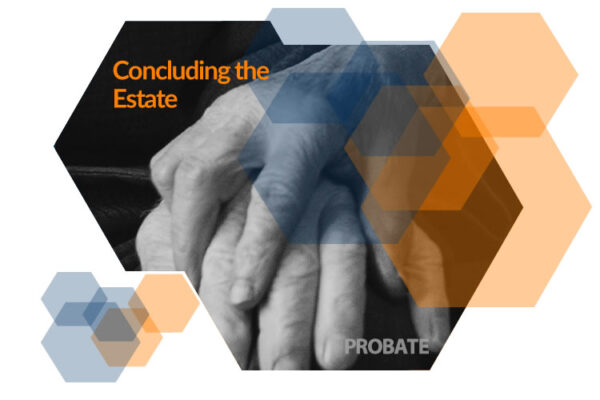PROBATE
IN STATE OF CALIFORNIA

After the estate assets have been inventoried, the period for filing creditor’s claims has expired and all claims paid or resolved, the necessary assets sold, and all required tax returns filed and taxes due paid, then the estate can be distributed.
Concluding the Estate
To conclude the estate it is necessary to petition the court and to obtain a court order to make the distribution. The executor must either file an elaborate accounting listing all receipts and disbursements or obtain a waiver of the accounting from all of the estate beneficiaries.
After the accounting is prepared or waived, a petition is drafted which is a summary of the estate and the actions taken. This petition lists the assets currently on hand and the proposed distribution of these assets. The fee that the executor or administrator and the attorney receive is computed and shown.
If everything is in order and there are no objections, the court will issue an order concluding the estate, ordering the fees paid, and the assets distributed.
Once the court order is obtained, checks may be written and assets reregistered in the names of the estate beneficiaries. After the assets are distributed a receipt for these assets is obtained from each estate beneficiary and filed with the court.
As previously stated, if the estate is relatively simple and no federal estate tax is due, it can be concluded in 9-12 months. If there is an estate tax due, the period will likely increase to 12-15 months. The estate should not be in probate for more than 18 months unless there is litigation or significant problems that prevent distribution.

